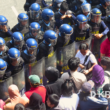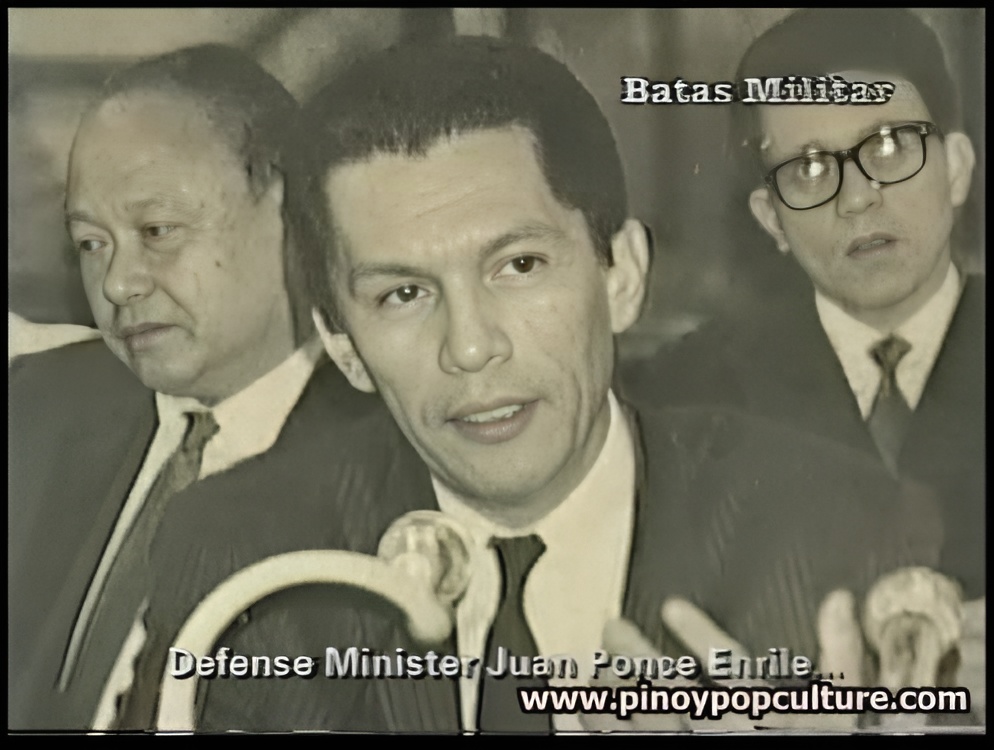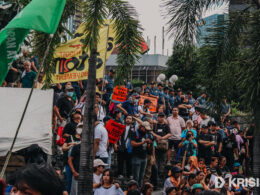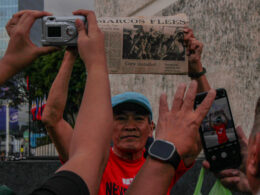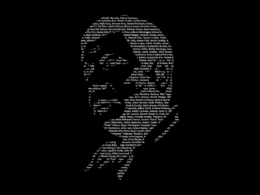Juan Ponce Enrile died on November 13, 2025. His death closes a century of political life that, while remarkable for its endurance, is inseparable from the story of institutional decay, corruption, and violence that has defined the Philippines since Martial Law.
Enrile’s public image was built on survival. Across administrations, he presented himself as indispensable: the legal architect under Marcos, the coup plotter turned revolutionary under Aquino, the senator who lived long enough to become a meme in the digital age.
Yet beneath that veneer of adaptability was a man who consistently placed power above principle. To treat his longevity as virtue is to mistake self-preservation for public service.
History records him first and foremost as the principal engineer of Martial Law.
In 1972, his staged ambush provided the legal fiction that justified the suspension of constitutional freedoms. As Defense Minister, he presided over a machinery of repression that authorized the detention, torture, and killing of thousands. He was complicit in the silencing of journalists, the disappearance of activists, and the persecution of entire communities.
The atrocities of that period—the Sag-od Massacre, the burning of Jolo, the Palimbang and Patikul massacres, the razing of Moro villages across Mindanao—were not the excesses of rogue soldiers. They were the products of a policy framework designed to secure control by any means necessary.
To this violence, Enrile added economic devastation. He oversaw the diversion of billions in coconut levy funds, a scheme that enriched cronies and deepened the poverty of farmers in Quezon and Visayas. His administration of military-controlled industries accelerated deforestation in Samar and Mindanao, leaving landscapes barren and communities displaced. In these acts, one observes not the errors of an ambitious bureaucrat, but the deliberate consolidation of a political economy built on plunder.
That Enrile outlasted his contemporaries is a testament not to his moral resilience, but to
the failure of Philippine justice. Despite exhaustive documentation of his crimes, he evaded accountability through a lifetime of reinvention. He voted against opening the second envelope in the Estrada impeachment trial, then sided with the same populist forces that sought to overturn EDSA. He was implicated in the pork barrel scam, accused of diverting millions in public funds, and yet lived his remaining years unconvicted. The state that he once twisted into submission proved incapable of holding him to account.
His death invites not reflection on the inevitability of mortality, but reckoning with the persistence of impunity. Enrile’s life traces the continuity of elite rule in the post-authoritarian era, the same network of patronage and legal maneuvering that allowed dictators, cronies, and plunderers to die free men. His career should be read as a cautionary text in constitutional failure: how the law, when stripped of justice, becomes the language of tyranny.
To mourn Enrile as a “brilliant statesman” or “key legislator” is to erase the memory of those whose lives were consumed by his policies. The measure of a life in public office cannot be its duration or its rhetorical eloquence, but its fidelity to the people it claimed to serve. Enrile’s centenarian existence does not balance the scales against the generations silenced under his regime. The passage of time does not cleanse guilt; it merely dulls the urgency of redress.
There will be those who say that he also authored reforms, that he contributed to national defense, and that he played roles in different democratic transitions. But these gestures of governance cannot be severed from the conditions of violence that enabled them. To speak of his “service” without naming the bodies buried under it is to repeat the moral blindness that allowed dictatorship to masquerade as order.
The responsibility now falls on those who remember—to resist the ceremonial erasure that accompanies the deaths of the powerful. Public eulogies that paint Enrile as a “patriot” do violence to history. They impose closure where none is deserved. Every attempt to canonize him as a “founding father of the Republic” is an act of complicity in the ongoing absolution of power.
The challenge is not simply to condemn one man, but to confront the institutions that allowed him to thrive. The same impunity that sheltered Enrile animates today’s political landscape: from the architects of disinformation to the custodians of stolen public funds. When we ask whether justice will ever come for the victims of Martial Law, we are also asking whether figures, embroiled in corruption yet shielded by influence, like Zaldy Co will live as long and die as free.
Justice is measured not in years, but in consequences. Enrile wielded the law as a weapon, teaching a nation to mistake legality for justice. He was mortal, and though his death changes little for those living among the ruins he built, memory outlives power.




